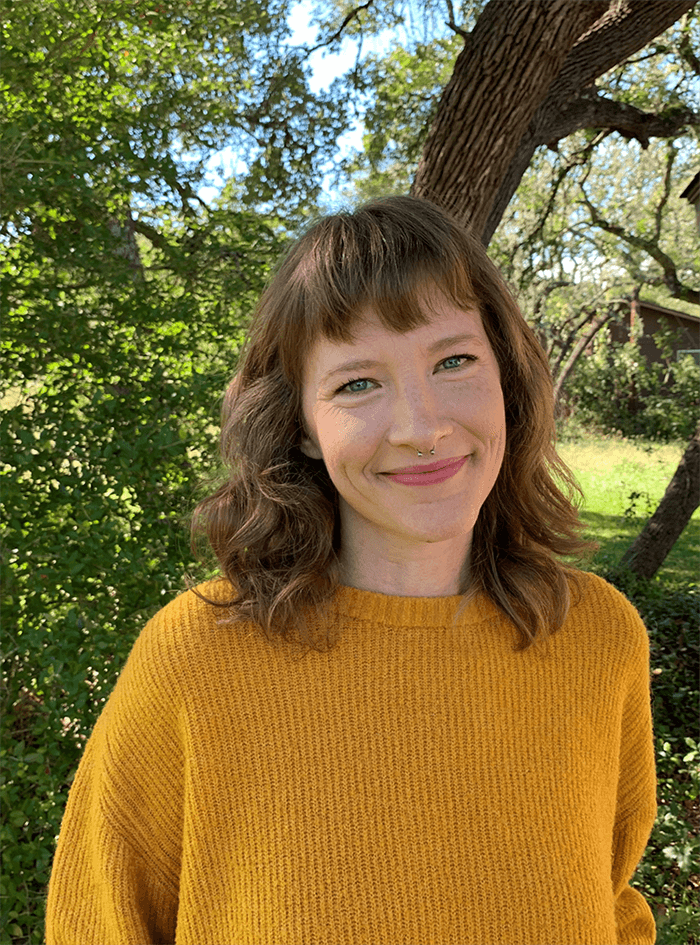KetamineAssisted Therapy
What is Ketamine-Assisted Therapy?
Who should consider KAT?
Ketamine is used off-label for various mental health struggles, including depression, chronic pain, anxiety, post-traumatic stress disorder, and addiction.
Some medical and psychiatric conditions need to be treated before you can safely work with ketamine. These include hallucinations, untreated mania, forms of cardiovascular disease, uncontrolled hyperthyroidism, increased intracranial pressure, cystitis, evidence of liver disease, or addiction recovery that could be jeopardized by IV medication administration.
A medical and psychological intake will help you determine if you are an appropriate candidate for this work.
What is Ketamine?
Ketamine has been used off-label in sub-anesthetic doses in psychotherapy for more than 20 years to treat chronic pain, depression, and a variety of other mental health concerns, thanks to its rapid onset antidepressant effects, sometimes providing nearly immediate relief from emotional and physical pain. While the antidepressant effects tend to be temporary after a single ketamine treatment, multiple treatments have proven to have a cumulative impact, successfully alleviating symptoms in up to 60% of individuals 60% of individuals with treatment-resistant depression.
In moderate doses, ketamine has psychedelic effects, which have been shown to facilitate profound transpersonal experiences. These types of incidents can help people in various ways, offering important clarity and insight into one’s struggles, adding a spiritual/transcendent dimension to ongoing therapeutic work, and facilitating a sense of meaning and interconnectedness.
What to Expect?
During a 2 hour KAT session, clients first meet with medical staff that will administer the ketamine. Before the ketamine is administered, clients meet with their KAT therapist for 20 minutes to prepare. Ketamine is then given through an IV with onset around 5-10 minutes and duration around 60 minutes. The therapist will be present and engaged throughout the experience and help the client begin integrating their insights after the medication has stopped being administered.


Upon reentering waking consciousness, there will often be much to process, and not all of it will make immediate sense. This initial stage of returning and remembering is a vital aspect of KAT, where insights can be brought back, processed, and digested into takeaways that can be implemented into one’s daily life. Having a therapist familiar with these journeys can significantly enhance the long-term impact of the ketamine experience along with helping find one’s equilibrium and sense of feeling grounded after coming back from such a profound journey.
After your KAT sessions
You may wish to participate in stand-alone integration sessions in which we will help you integrate your experience during the ketamine session, discuss how you responded to the medicine, and determine an individualized course of treatment moving forward. Generally, multiple ketamine sessions are required to experience lasting effects. We recommend a commitment to a minimum of 3 sessions, as this medicine tends to have a cumulative effect and is most beneficial after multiple treatments. You and your care team will determine the exact number of KAT sessions based on need. Please contact us directly for more detailed information and to answer any questions you might have.
Our Therapists & Coach
Laura Evans, Lead Therapist
M.A., LMFT-S

Laura Evans is a Licensed Marriage and Family Therapist-Supervisor and the Lead Therapist at Illumma who has extensive training in ketamine, including both individual and group ketamine certificates from the Psychedelic Research and Training Institute (PRATI).
Laura supports individuals, groups, and couples, as well as adolescents and their families across a wide range of presenting concerns (such as depression, anxiety, PTSD, relational and existential issues, and more), identities, and backgrounds, including neurodivergent and LGBTQ folks. Laura is passionate about working alongside those who have experienced developmental trauma as well as other therapists who are struggling. She hosts ketamine-assisted therapy retreats in addition to her sessions at the clinic.
Laura partners collaboratively with her clients, believing that they are the experts of their lives and that ketamine is like a key that unlocks the door to regain access to the innate healing capacity that exists inside all of us. Laura utilizes Internal Family Systems, Interpersonal Neurobiology, Polyvagal Theory, Attachment Theory, and more, and she is currently completing certification in Somatic Experiencing and Embodied Imagination. Laura’s strengths as a therapist are her curiosity, compassion, warmth and humor. She believes that trust and safety are the most important ingredients in the therapeutic relationship.
Laura emphasizes the importance of integration with clients and helps them craft these integration rituals and practices to maximize the benefits of ketamine-assisted therapy and the duration of these benefits. Laura believes that we are all on a journey of remembering our wholeness, and uses PRATI’s purpose of “restoring connection to the sacred: self, community, nature and spirit” to guide her work.
In her role as Lead Therapist, Laura manages the therapy team, develops programs and projects for the clinic, and offers training, supervision, and consultation to other professionals.
Laura is trained in MDMA-Assisted Therapy and psilocybin facilitation, and she looks forward to offering these services when they are available in the future.
Jordon Stanford
LMFT-A

Jordon is personally experienced with various psychedelic medicines, including ketamine, as well as spontaneous transcendent experiences. He has also worked with a diverse group of shamans and medicine practitioners. He practices Bikram Yoga, meditation, running, and extended plunges in freezing water.
Meghan Kane
LMFT-A

Meghan is a dedicated Licensed Marriage and Family Therapist Associate, holding a Bachelor’s degree from Texas State University and a Master’s degree from St. Edward’s University. She has pursued specialized certifications in Psychedelic-Assisted Therapy through Naropa University and MDMA Assisted Psychotherapy through the Multidisciplinary Association for Psychedelic Studies (MAPS).
Meghan is profoundly humbled to walk alongside you on your path of transformation, serving as a compassionate witness to your experiences. With a rich background in psychedelic medicines and non-ordinary states of consciousness, she fosters a safe and nurturing space for deep exploration. Her therapeutic approach combines compassionate understanding, genuine warmth, and unwavering curiosity, all while deeply honoring the uniqueness of your individual journey, identity, and cultural background.
As a therapist, Meghan integrates a diverse array of therapeutic modalities, including Internal Family Systems (parts work), mindfulness practices, attachment sciences, and depth psychology. Through this integrative approach, she offers steadfast support as you embark on the profound journey toward self-discovery and healing.
Outside of her therapeutic practice, Meghan finds solace in the companionship of her family, spending time in nature, reading and cultivating mindfulness to maintain a grounded and centered presence.
Marci Jacobs
M.S. LPC

Marci loves being a psychedelic therapist– like, a lot. She is a Licensed Professional Counselor and earned her BS in Psychology from Texas State University, her MS in Counseling from Southern Methodist University, and completed the Ketamine Assisted Psychotherapy certification through PRATI. Marci thinks the integration of psychedelics with psychotherapy is a science and also an art form. She holds equal parts respect for the neuroscience behind this medicinal use, as well as a deep reverence for the symbols, emotions, and depth that comes from a psychedelic experience.
Working with Marci means working with the whole self– mind, body, and spirit. She intentionally brings a down-to-earth and caring presence to her sessions. When not working, Marci is happiest when she’s in the sunshine, well fed, or playing with her kitty and dog.
Hannah Sharper
LMSW

Hannah is a Licensed Master Social Worker with a Bachelor’s degree in Film from Colorado College and a Master’s in Social Work from the University of Texas at Austin. She has undergone training in Ketamine Assisted Psychotherapy with Illumma and Heart-Centered Therapy.
Hannah believes in the power of humor and creativity, and uses both to help clients explore their past, present, and future experiences. She is passionate about psychedelic medicine, and sees ketamine as a tool in activating the mind’s innate capacity to heal. Operating from the standpoint that lasting change stems from radical self-compassion, Hannah helps clients move beyond shame by creating space for the full spectrum of thoughts, emotions, and sensations.
With an approach rooted in attachment, mindfulness, and Emotionally Focused Therapy (EFT), Hannah guides teens, adults, and couples in discovering their own version of wellbeing. When not therapist-ing, Hannah enjoys being outside, petting animals, and getting as cozy as humanly possible.
Rebecca Kline
LMFT-A

Rebecca is a licensed Marriage and Family Associate with a unique journey that combines her experiences. in military service and a passion for counseling. She earned her Bachelor of Science while proudly serving in the United States Navy and furthered her education by obtaining a Master of Arts in Counseling from St. Edward’s University. She has undergone specialized ketamine-assisted psychotherapy training through Fluence Academy, embracing a holistic approach to healing. Her practice is rooted in the belief that we are already whole, and psychedelic medicines can guide us in our journey to heal and remember our true selves. By integrating holistic practices and her personal experiences with altered states of consciousness, she can guide you on a profound journey of self-discovery and healing.
Ketamine-Assisted Therapy Pricing
Onboarding Session, 2-hrs – $360
KAT Ketamine Sessions (2hr) – $800
Integration Session – $180
Six KAT Bundle Package – $4860**
**Total package amount for Onboarding Session and six KAT sessions. Paid for in three payments of $360 (onboarding), $800 (single session) and $3700 (package remainder), which allows you to insure that you are paired with the right therapist and ready to commit to the KAt process fully.
KAT sessions include approximately one hour of IV ketamine, with approximately 30 minutes of pre-therapy and 30 minutes of session processing.
Clients are required to have a credit card on file with Illumma while receiving KAT.
Illumma has a cancellation policy around missed appointments. Please get in touch with staff to learn more.
Find Your Light at Illumma
Schedule your complimentary consultation today.
